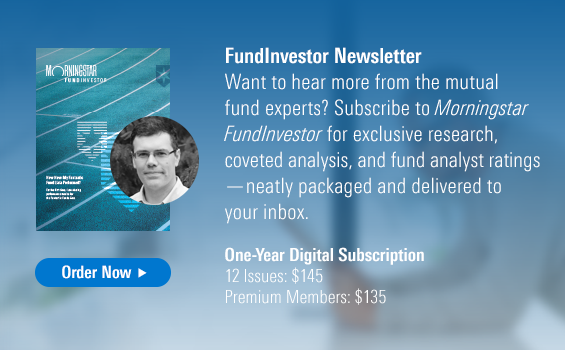Fund Capital Gains Distributions: What to Expect in 2021
Susan Dziubinski: Hi, I'm Susan Dziubinski with Morningstar. Mutual funds typically make capital gains distributions during the fourth quarter each year. Joining me today to discuss what investors can expect this capital gains season is Russ Kinnel. Russ is Morningstar's director of manager research and editor of Morningstar FundInvestor.
Hi, Russ. Thanks for being here.
Russ Kinnel: Glad to be here.
Dziubinski: Let's start with a little bit of a primer on capital gains distributions. Why do funds have to make them, and why do they usually make them in the fourth quarter?
Kinnel: By law, funds are required to distribute their net capital gains that they realize by the end of October each year. So, they have to distribute income, but they also have to distribute all the capital gains they realize. And that doesn't relate to what kind of profits or losses you might have made in the fund. It's sort of independent. After you sell the fund, then that all totals out. But in the meantime, they distribute every year that they realize net gains.
Dziubinski: Then before funds pay out these distributions, they usually provide what we call estimates of what these distributions will be. When do we usually see those start to come out?
Kinnel: Usually, it's the first week in November when those estimates come out, and they're very helpful if you're thinking about buying a taxable-account investment in the last two months of the year.
Dziubinski: These distributions, of course, matter most to investors who are holding funds in their taxable accounts. You don't really need to worry about it as much if you're holding your fund in a tax-deferred account like a 401(k), right?
Kinnel: That's right. Distributions in tax-deferred accounts don't matter. So, it's only taxable accounts.
Dziubinski: If you do own a mutual fund in a taxable account, and you find out that it is going to make a distribution, you're going to pay taxes on that distribution even if you continue to own the fund, right?
Kinnel: That's right.
Dziubinski: Based on what's gone on in the market this year, Russ, and what we've seen with fund flows, what do you sort of expect this capital gains distribution season? Do you think we're going to see a lot of distributions? Do you think they're going to be higher in certain parts of the market or certain types of fund categories than others? What do you expect?
Kinnel: I expect a fairly typical year, so not too different from the past years. And that's partly because returns are pretty solid. U.S. equity returns for a lot of funds are 20% or more. So, a very good year. Foreign equity, 10% or more. It's been a strong year. That certainly suggests that we should have a decent amount of capital gains paid out.
Dziubinski: If an investor owns a fund that plans to make a distribution, and they own the fund in a taxable account, is there anything they should do about it?
Kinnel: Probably just prepare to pay. Only if it's something really extreme would you consider, say, selling. If, say, you bought the fund in June and now it's going to make a 30% capital gains distribution, something like that, which is pretty rare. Otherwise, you really just have to prepare to pay taxes and avoid the fund for those two months if it's going to be at all a meaningful gain, then you can buy after it's made that payout.
Dziubinski: And then, lastly, Russ, so given that active mutual funds are more likely to make capital gains distributions than, say, a passive fund or an ETF, is there a case to be made that really if you want to have active strategies, it might be best to sort of tuck those in your tax-deferred accounts, and if you have taxable accounts, maybe stick more with index funds or ETFs, which tend to be a little bit more tax-efficient from a distribution standpoint?
Kinnel: For sure. I do have some active funds in taxable accounts. But I think some of the best ones for taxable accounts are muni funds for similar reasons as well as ETFs and index funds because they are very tax-efficient. And then be careful with the active funds you do choose. Some active funds are at least tax-aware and that can help somewhat. But definitely be careful. They are great for tax-sheltered accounts.
Dziubinski: Russ, thank you for your time today and for helping us walk through some of the issues we need to keep in mind during capital gains season. We appreciate it.
Kinnel: You're welcome.
Dziubinski: I'm Susan Dziubinski with Morningstar. Thanks for tuning in.


/s3.amazonaws.com/arc-authors/morningstar/fcc1768d-a037-447d-8b7d-b44a20e0fcf2.jpg)
:quality(80)/cloudfront-us-east-1.images.arcpublishing.com/morningstar/G3DCA6SF2FAR5PKHPEXOIB6CWQ.jpg)
:quality(80)/cloudfront-us-east-1.images.arcpublishing.com/morningstar/VUWQI723Q5E43P5QRTRHGLJ7TI.png)
:quality(80)/cloudfront-us-east-1.images.arcpublishing.com/morningstar/XLSY65MOPVF3FIKU6E2FHF4GXE.png)